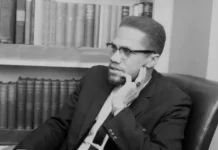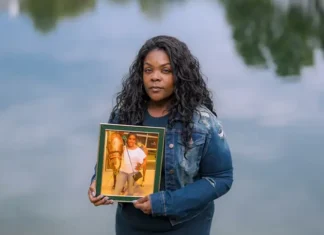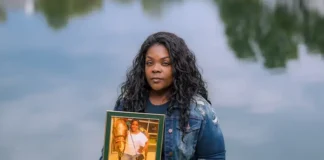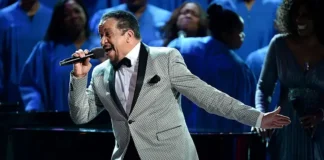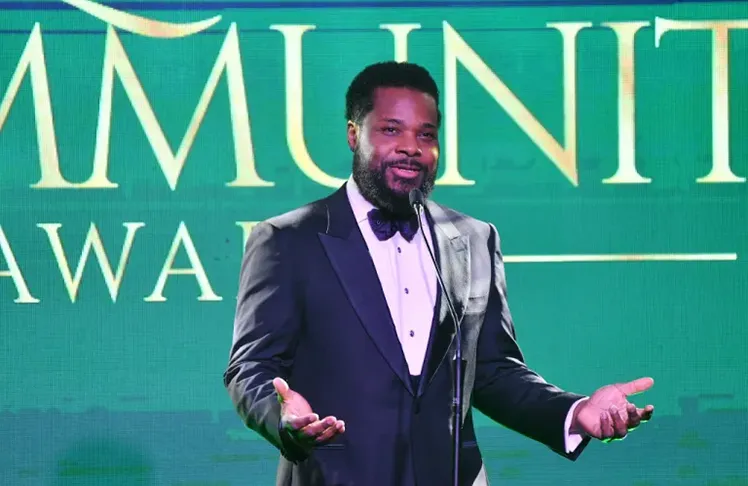
I did not know Malcolm-Jamal Warner personally, but like many who followed his artistry, I felt a connection — and felt seen.
When I heard of his drowning, like so many others, I was shocked. Not Theo Huxtable — that beloved character who introduced us to Warner: a teenager whose charm, missteps, and achievements created space for young Black male identity on screen? But through his art, I also saw someone who embodied a different kind of masculinity — vulnerable, curious, kind, understated, intelligent.
We do not decide when the waters call us home.
His death, as sudden and tragic as it was, reminded me of something sacred: life is but a vapor. We do not choose when it ends. We do not decide when the waters call us home. Like many, in the days following his death, I turned to the data about Blacks and swimming. While some 40 million U.S. adults can’t swim, more than a third of Black adults say they don’t know how to swim, compared to 15% of all adults. The figures vary, but the pattern is painfully clear. Still, what struck me most was this: our people were not always estranged from water.
Our ancestors did not arrive on these shores disconnected from the sea. They came with deep, spiritual ties to it. In West African cosmologies, rivers and oceans are sacred spaces—vessels of power, memory, and divine presence. This profound connection to water is deeply rooted in the lived experience of enslaved African Americans, where water becomes a profoundly spiritual and poetic metaphor.
In the Black Church, we are immersed in water before we rise into new life.
The meaning of water and drowning in our Black spirituals is a rich and layered legacy, with symbolism that encompasses suffering and salvation, death and deliverance, captivity and freedom. We hear that legacy in the spirituals we still sing — “Take Me to the Water,” “Deep River” — where water becomes a place of liberation and holy encounter.
In the classic spiritual “Wade in the Water,” water invokes biblical miracles and a protective force. The lyrics, “God’s gonna trouble the water,” reflect the belief in divine intervention — water concealed the movement of escapees or put them toward safety on the Underground Railroad. It embodies the promise of healing in the face of adversity.
In the Black Church, we are immersed in water before we rise into new life. Even in the womb, we are cradled in water — safe, forming, held. Water — and the threat drowning — remain a potent spiritual symbol linking our past and present, evoking both the wounds and the healing power at the heart of the Black church’s faith experience.
Slavery, settler colonialism, and segregation severed our relationship with water. Black communities were denied access to pools, beaches, and swimming lessons. We lost not just opportunity, but inheritance. What we now call fear was never innate; it was constructed through exclusion. But fear does not have the final word. Our resilience and strength as a community has and will prevail, a testament to our enduring spirit.
Malcolm-Jamal Warner could swim, according to all accounts. He was swimming at a beach on the Caribbean side of Costa Rica when he was apparently swept away by a rip current. His death had been accidental, caused by asphyxiation by submersion.
I find a profound sense of ancestral peace in believing that his final moments were not only tragic but also sacred — representing transcendence. The waters did not consume him; instead, they received him. He did not fall; he surrendered. He did not go under; he crossed over. He moved from his old life into something new, serving as a testament to the transformative power of water embracing change and growth.
Perhaps he stepped into the waters of Costa Rica and was met there by the Deity of our ancestors — the same Spirit who walked with our foremothers on slave ships; who whispered to fugitives on the Underground Railroad; and who baptized us in muddy rivers when no church would receive us.
He constantly evolved, much like the waters that called him — never static, always flowing.
Malcolm-Jamal Warner’s legacy will have different meanings for different people. To me, he represented both salt and light to Black America — preserving what is sacred and illuminating the possibilities. He served as a mirror, a muse, and a model of grace and peaceful brilliance. Malcolm embodied truth, dedicating his life to its pursuit. He asked profound questions, sought wisdom, and engaged deeply with brilliant minds while remaining rooted in his community. He constantly evolved, much like the waters that called him — never static, always flowing.
His sacred becoming is what I carry now. Even in death, he remains with me —not just in memory, but in witness: shaping how I continue to wrestle with manhood, artistry, identity, and gentleness. To me, his living and drowning metaphorically stand for overcoming trials and forging a resilient sense of survival and spiritual rebirth daily.
Let us honor that legacy not merely in words, but in action — by loving deeply, reclaiming our relationship to water — physically and spiritually, teaching our children to swim, and healing what slavery, settler colonialism, and segregation tried to drown. Let us be the architects of our own destiny, reclaiming what is rightfully ours.
Let us remember: Water is not only where we get lost, but also where we are born. It is where we begin again, when the waters call us home to the place where our ancestors are waiting.
May the memory of Malcolm-Jamal Warner be a lasting blessing, inspiring us all and ensuring that his spirit remains an example to follow.
Charles E. Becknell, Jr., is an assistant professor of Africana Studies at New Mexico State University and the pastor of Emmanuel Missionary Baptist Church in Rio Rancho, NM. His work explores Black theological traditions, liberatory education, and the healing power of ancestral memory and cultural witness.




